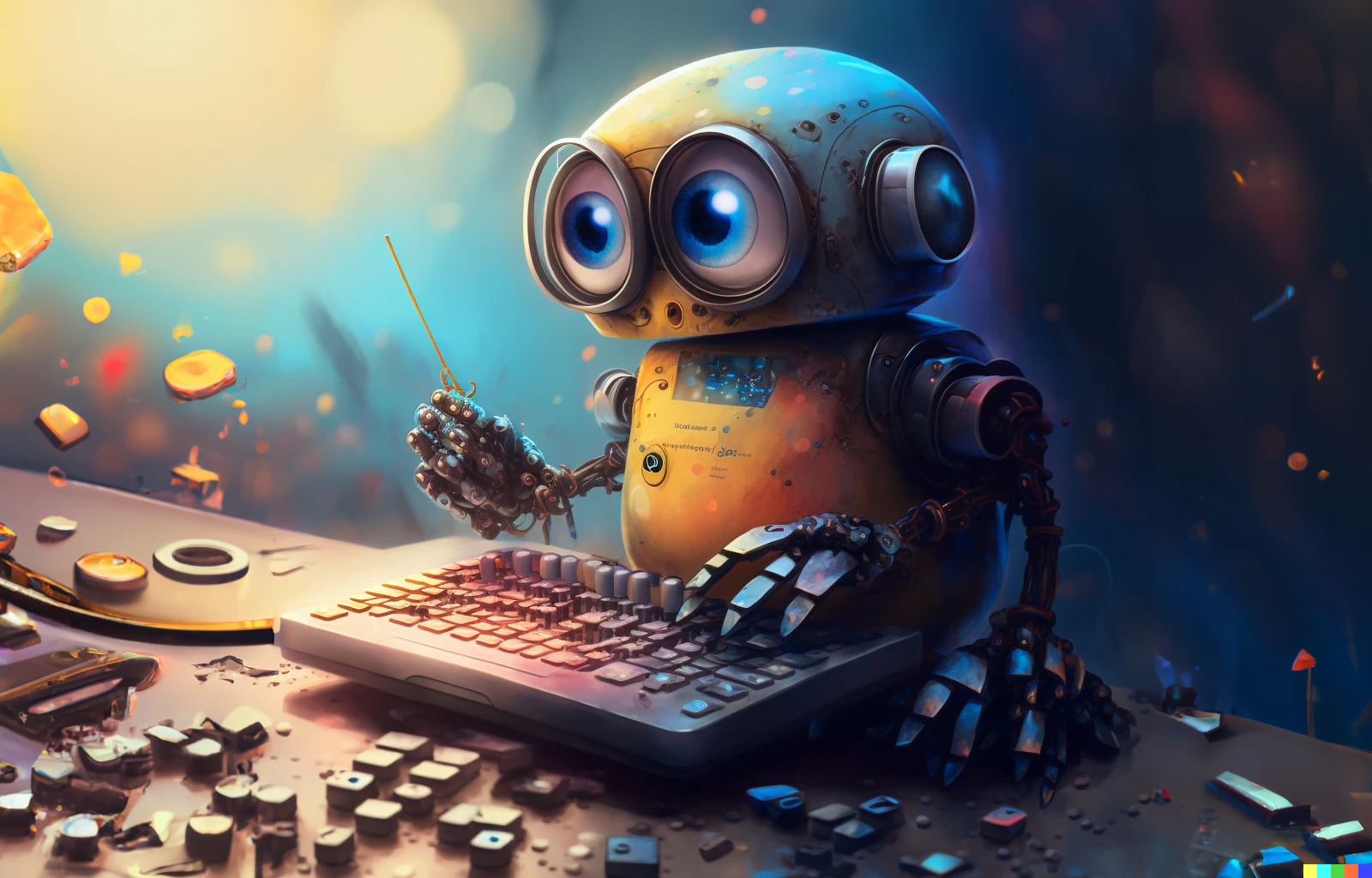Google looks into AI for code, but not everyone thinks it's a good idea

Google wants to optimize and rewrite code with AI. The tech giant is also said to be planning a major push into generative AI. But there is also skepticism about code-writing AI.
In 2018, Google put artificial intelligence at the center of its operations and even renamed its research department into Google AI. Since then, more and more AI applications are finding their way into Google products, such as the Pixel smartphones. According to a report by Business Insider, Google will focus on generative AI in the future.
A Pitchfork to clean up the code
According to Business Insider, Google's Pitchfork project is working on an AI system that learns to write, repair, and update code on its own. In February, Google's sister company Deepmind unveiled Alphacode, an AI system that aims to program at a human level, but is primarily intended as an assistance system for humans.
The AI software developed in Project Pitchfork, which is part of the Google AI Developer Assistance Program, is intended to act more autonomously than currently known code AIs such as Alphacode or Microsoft's Copilot.
Pitchfork will be able to learn, write and rewrite code from scratch itself, learn different programming styles, and generate new code based on them, according to an internal project description.
Pitchfork began as a moonshot project in Alphabet's "X" research unit. Since the summer, the project has been located at Google Labs, which should underline its importance. At Google Labs, the company is focusing on long-term technological transformations.
The code project is said to be part of a larger move by Google toward generative AI. Google recently made its own powerful image AI, Imagen, available in a test environment for select users. A broader rollout in the near future is conceivable.
Google also showed the text-to-content research systems Imagen Video for AI-generated videos and Dreamfusion for 3D objects.
Heading for a new age of AI code - or maybe not
Only time will tell if and to what extent code AIs catch on. Github CEO Thomas Dohmke, who sells Copilot, an AI code tool, predicts that up to 80 percent of code will be written by machines in five years.
Amjad Masad, founder of co-coding platform Replit, sees similarly drastic changes coming to the software market: AI is a 100x productivity boost for developers, he said. The currently known AI tools only manage a 30 to 50 percent increase.
The next generation of code AI is more than autocomplete and will lead to "rapid change in how we make software," Masad writes.
Replit is working on its own code AI that allows even non-programmers to create complex software. "Everyone in the world will be at least John Carmack-level software capable," Masad writes.
Put these things together, one developer will have the power of an entire network of AIs, people, and services at their fingertips. I believe a 100x productivity boost is the lower bound here.
- Amjad Masad ⠕ (@amasad) November 23, 2022
Kite founder Adam Smith has an entirely different perspective. Since 2014, his startup had been working on AI-powered programming tools with autocomplete. Now Kite is giving up, releasing its code as open source on Github.
Smith's reasoning is interesting: his startup was at least ten years too early to market. "The tech is not ready yet," Smith writes in parting remarks on his company's website. Smith explicitly includes Github Copilot in his criticism.
The largest issue is that state-of-the-art models don’t understand the structure of code, such as non-local context. We made some progress towards better models for code, but the problem is very engineering intensive. It may cost over $100 million to build a production-quality tool capable of synthesizing code reliably, and nobody has tried that quite yet.
Adam Smith
Smith, however, also admits to management mistakes in monetizing Kite's software and in product development that would have contributed significantly to his startup's bankruptcy.
The question of copyright is also an open issue in the context of code AIs. A lawsuit is currently pending in the USA against Github Copilot for possible copyright infringement involving code examples that were adopted during AI training.
AI News Without the Hype – Curated by Humans
As a THE DECODER subscriber, you get ad-free reading, our weekly AI newsletter, the exclusive "AI Radar" Frontier Report 6× per year, access to comments, and our complete archive.
Subscribe nowAI news without the hype
Curated by humans.
- Over 20 percent launch discount.
- Read without distractions – no Google ads.
- Access to comments and community discussions.
- Weekly AI newsletter.
- 6 times a year: “AI Radar” – deep dives on key AI topics.
- Up to 25 % off on KI Pro online events.
- Access to our full ten-year archive.
- Get the latest AI news from The Decoder.